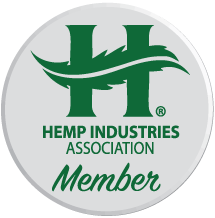Florida, at times, can be a crazy place, and that’s not even referring to the weather. It boasts everything from major theme parks to beautiful beaches, from isolated swamps to noisy, crowded cities.
Floridians have distinguished themselves by trying to make sense of the chaos, including placing rules and regulations on cannabis, which can include marijuana products as well as CBD oils and food products. Instead of different rules for different communities and gray areas on what distinguishes commercial hemp from illegal cannabis, lawmakers and hemp business owners have taken steps to help Florida hemp someday having the same recognition and high standards of quality as Florida citrus.
Today, any CBD products intended for sale must adhere to certain rules, including having a detailed label, which must include, or include an URL to provide info about:
- The name of the manufacturer.
- The name, number and any details about this batch.
- Any expiration dates
- Milligrams of hemp extract
- Contact information about the manufacturer including email, phone number and website.
- A statement saying that it may include THC but no more than .3 percent, which is the legal threshold for CBD products.
In addition, the label is also required to have a Florida CBD QR code that, if scanned with a mobile device, will provide the Certificate of Analysis for that particular batch. This certificate is provided by an accredited independent laboratory. The paperwork gives details about what was analyzed, including any presence of any other ingredients, any contaminants, and percentage of THC.
These regulations, which were approved in 2019, cover hemp in general, extracted hemp oils, hemp used in food, hemp in cosmetics and products made from hemp. In addition, the hemp legislation added hemp, hemp products and hemp extract to the state’s “Fresh From Florida” Agricultural Promotional Campaign. This provides a level of recognition and support commercial products grown in the state, including oranges.
Unlike some states that have zero tolerance for any non-hemp cannabis products, Florida has made medical marijuana available since 2014. This started with approval of rules to allow doctors to prescribe low THC/high CBD cannabis oil for patients with certain medical conditions. It also allowed cannabis research into medical uses and created an Office of Compassionate Use. This was refined in 2019 to allow higher levels of THC and CBD.
Passage of the 2018 Farm Bill made hemp legal to grow, although each state was required to develop their own growing and selling programs.
Along with following labeling requirements, hemp growers or processors/manufacturers also must apply to the state for a license. As long as the labeling rules are followed and testing data remains free of contaminants or too high of THC levels, the state of Florida allows CBD products to be sold anywhere, including health stores, restaurants, and cafes.
It also allows the sale of full spectrum, broad spectrum or isolate. This figure is based on the amount and types of cannabinoids. Even though most people focus on THC and CBD, there are actually more than 100 natural compounds in the cannabis plant, and they all can have different effects on the body. Full spectrum means all cannabinoids were extracted, broad spectrum means that that THC was stripped out, and isolate means everything is taken out except CBD.
Generally, the CBD industry and the testing industry support these regulations.
ACS, a lab near Tampa, said that in the past, many CBD product labels have been found to be either too high or too low in CBD potency, or have undisclosed amounts of THC. These findings were also reported by the Journal of the American Medical Association. Being able to provide a Certificate of Analysis on the Florida CBF QR code can show that the manufacturer – and the lab – stands behind their product.



